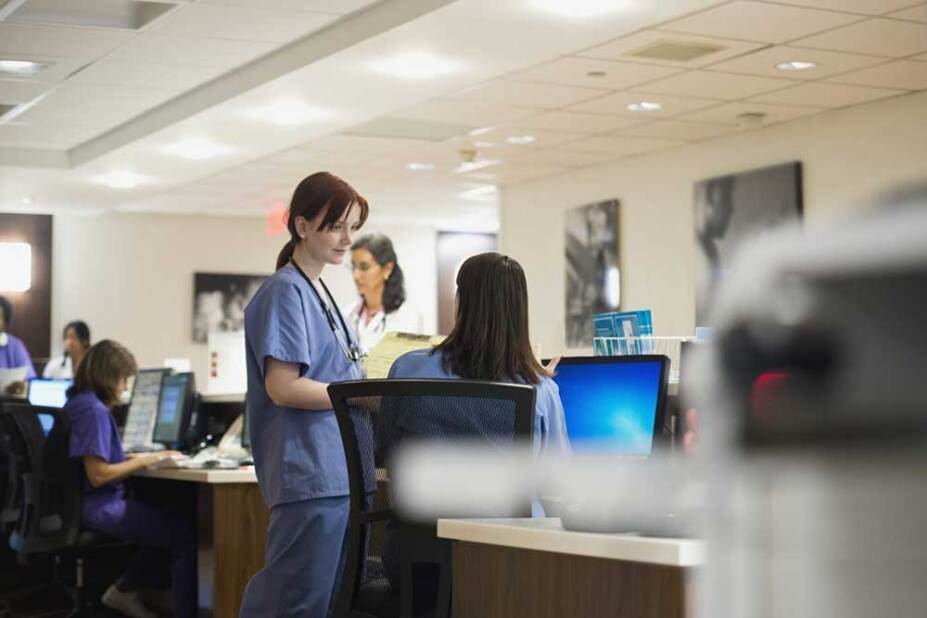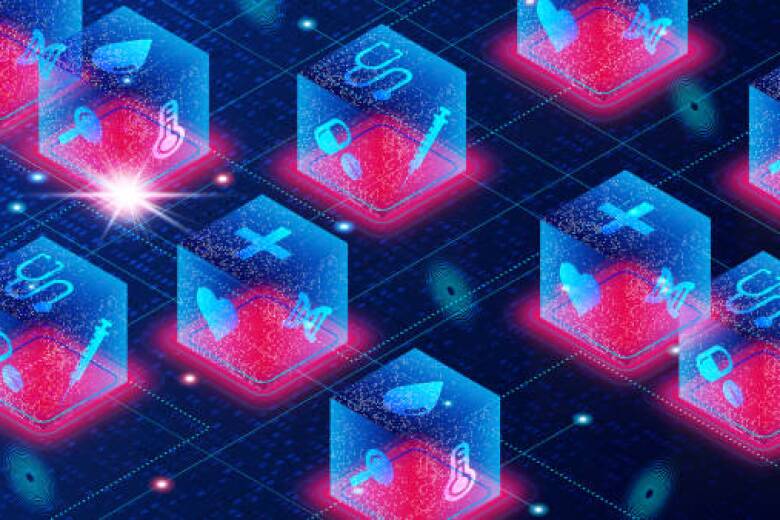Welcome back to our journey through the InterSystems and Hack Healthcare challenges. It is time to roll our sleeves up and dive deeper into the discoveries made during the Challenge Identification Workshops, which followed the Exploratory Workshops.
Three months after the initial exploration phase, this collaboration embarked on a new quest, whose goal was to create a fresh catalogue of challenging hypotheses about the topics discussed during the Exploratory Workshop: Enhancing data sharing in and between hospitals and Enhancing data sharing between the lines of care. However, this time, besides our partners and clients, the organisation selected some external participants who helped achieve the relevant outcomes not only for our market but THE market.
Moreover, the brainstorming sessions revolved around specific personas. Thanks to the participants' diverse professional backgrounds, the varied perspectives were brought into play, which stretched these new challenge hypotheses. We held this workshop in a comfortable environment, with already familiar faces of previously established partnerships. However, the results were verified by the external audience in the Ecosystem Workshop, but it is a topic for another post.
Mapping the way in
In the first step, the attendees were split into three groups. Their first task was to identify as many stakeholders involved in their cases as possible. Then, they selected specific personas that either were represented or known very well by at least one of the participants. Then, the teams delved into the feelings, thoughts, goals, pains, and gains experienced by these individuals.
Based on this analysis, they listed problems encountered by their personas, which they refined into challenge hypotheses. The team that focused on Enhancing data sharing in and between hospitals chose two personas: an orthopaedist and a hospital considering a third-party platform. The participants decided to present the specialist in two different ways.
An orthopaedist
In the first scenario, the orthopaedist worked in one hospital and, according to the group, struggled with decoding their notes correctly. Therefore, the crucial information often ended up in the comments field. This observation led to challenge hypotheses:
- How might we help specialists feel the benefits of properly encoded notes (e.g., the impact for research, better patient experience, time savings across the healthcare system, etc.) without micro-managing them?
- How might we get hospitals to provide specialists with tools for simplifying/accelerating encoding and train them in using the tools?
- How might we allow patients to verify, validate, and consult notes taken by the specialist?
- How might we accelerate encoding by automating the encoding of plain text notes and letting specialists validate the encoded notes?
Solving these challenges would bring a cascade of gains, from reducing hospital and specialist costs by improving communication with the patient and making it less time-consuming. What is more, to find the right diagnosis, a note from a specialist could help a patient understand the disease better, which could help them describe and/or identify their symptoms better. Overall, it would improve the patient experience. The doctor would not risk losing patient trust and could speed up the bureaucratic process.
Connecting hospitals
However, sometimes one doctor works in two different hospitals, it often happens that even if the entities are in the same city, they do not share patient medical information. Therefore, the hospitals run redundant tests because they cannot quickly and directly access test results from other entities. That leads to the following challenge hypotheses:
- How might we create in digital, and paper form a template specific to orthopaedic cases so that communication from one specialist to another via the patient is possible?
- How might we motivate a specialist to share an accurate medical report/file with a similar specialist in another hospital?
- How might we incentivise a hospital to decrease or eliminate redundant tests, from blood tests to radiological examinations?
Finding solutions to these issues could provide good cooperation between specialists, which could improve extended care. It would also allow us to give better-shared diagnostics among experts that avoid mistakes and errors with a lack of shared information.
A hospital considering a third-party platform
The last issue that was identified by this team was that hospitals considering a third-party platform do not see any added value in sharing patient information beyond the legally required minimum. For the same reason, they also do not invest in the quality of the data they share (resulting in incorrect or incomplete coding). The group pondered:
- How might we build awareness in the healthcare ecosystem of the cumulative positive effects of sharing health data?
- How might further we encourage medical providers to collect and share high-quality healthcare data?
- How might we spur hospitals to share their patients' data to a central, autonomous, and independent platform to aggregate the data, and make it available to other stakeholders?
Empowering Chronic Patients
The second workshop was dedicated to Enhancing data sharing between the lines of care, which included hospitals, patients, and doctors, for example, GPs. During this workshop, the groups worked on cases of two different personas: a chronic patient and a rural GP. The first persona dealt with never-ending frustration. Imagine visiting a hospital repeatedly, answering the same questions, and drowning in paperwork. Trust dwindles when essential medical data has not been stored efficiently.
Furthermore,
keeping up-to-date patient records can be very time-consuming for the GPs. What is even more important is that not all chronic patients are always willing to share their medical data outside their care team as they do not appreciate the benefits for other patients. Solving these issues can be stimulated by asking the preceding questions:
- How can we raise awareness of the cumulative positive effects of sharing health data in the healthcare ecosystem?
- What incentives can encourage medical providers to collect and share high-quality healthcare data?
- Can we motivate hospitals to share patient data with a central, autonomous platform for the benefit of all stakeholders?
- How might we make it tangible for patients that the use of their medical data helps find cures to diseases?
- How might we give the patients the means to review and suggest corrections or additions to their data? (e.g., a review mode in Word)
Solving these issues would boost medical data quality, save time, and improve patient care drastically. Moreover, the cover of hospitalisation could play a facilitator in motivating hospitals to share their patients' data. All stakeholders would win time for better diagnostic and follow-ups and assure patients with chronic diseases of a better medical journey. It would be easier to share with all actors, such as caregivers, GPs, physiotherapists etc. After consultation with the audience, the group noticed another significant aspect that could be considered in future projects - It is believed that "willingness to share" for clinical research may be greater if data are anonymous.
Struggles of a 60-year-old rural GP
Lastly, the third team recognised two obstacles to the smooth way of working for the 60-year-old rural GP. During a recently hospitalised patient's consultation with a GP, the GP spent a considerable amount of time reading the patient's file as data shared by the hospital is seldom structured to fit the GP's EMR. This decoding eats up valuable time. Further, the GP may need to review the full details of a patient's condition provided by a specialist and might need to seek additional information from the hospital. Also, the pharmacists might give the patient the necessary information about taking the medication and liberate more of the GP’s time for interaction with the patient.
The challenge hypotheses aimed to:
- reduce GP’s time spent on administrative tasks and allow them to give this valuable time to the patient care,
- enable patients to review and suggest corrections to their data,
- let the GP prepare for each new visit of a patient.
- How might we guide the GP to ask the right questions to the patient based on the patient's condition and the problems or complications a specialist expects are likely to arise?
Forging ahead
The journey does not end here. Throughout our collaborative workshops, participants have dissected complex scenarios and delved into the perspectives of various personas. They aimed to address the real-world issues faced by healthcare professionals, institutions, and patients. Thanks to these relatable personas, each participant could bring a unique insight to the table, drawing not only from their professional backgrounds but also from first-hand experiences.
From the workshops' discoveries, we have formulated challenge hypotheses that will shape the future of healthcare. These challenges will undergo further review by an extended group representing the entire ecosystem. We aim to bring these ideas to life during the Ecosystem Workshops. By exposing the challenges to a wholly external audience, we hope to ensure their relevance for companies and organisations in the healthcare sector.
Reshaping the healthcare data landscape continues, propelled by the shared vision of making healthcare more accessible, efficient, and patient-friendly. Together, we are charting a course toward a future where healthcare data becomes a powerful tool for better diagnostics, improved care, and healthier lives.





































